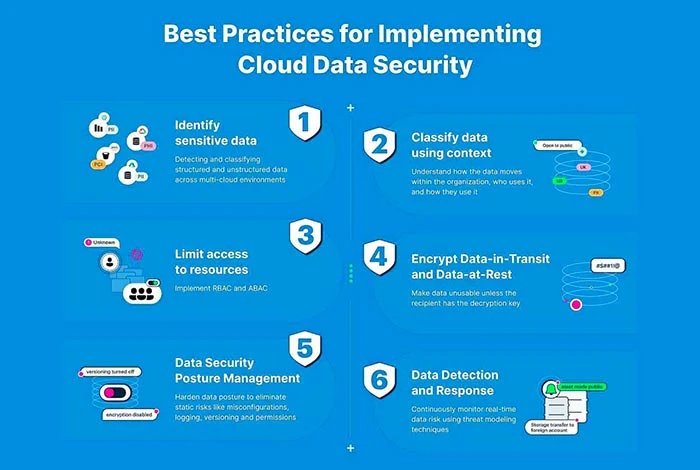Cloud computing and data security are reshaping the modern digital landscape, offering unprecedented convenience and efficiency. As businesses and individuals increasingly rely on cloud services, understanding the intricacies of data security becomes paramount. This topic invites you to explore the balance between leveraging cloud technology and safeguarding sensitive information, ensuring a secure and seamless experience.
The growth of cloud computing has transformed the way data is stored and accessed, making it crucial to address the security challenges that come along with it. In this exploration, we will delve into various aspects of cloud computing and data security, providing you with insights that not only inform but also empower you to navigate this essential domain.
In today’s fast-paced and ever-evolving work environment, emotional intelligence (EI) plays a crucial role in determining success and fostering a positive workplace culture. Unlike traditional intelligence, which typically measures cognitive abilities, emotional intelligence encompasses the ability to recognize, understand, and manage our own emotions as well as the emotions of others. This article delves into the significance of emotional intelligence in the workplace, exploring its components, benefits, and ways to enhance it within teams and organizations.
Understanding Emotional Intelligence
Emotional intelligence consists of several key components: self-awareness, self-regulation, motivation, empathy, and social skills. Self-awareness refers to the ability to recognize one’s emotions and their impact on thoughts and behavior. Self-regulation involves managing those emotions healthily and constructively. Motivation, in this context, is about harnessing emotions to pursue goals with energy and persistence.
Empathy, another vital component, allows individuals to understand and share the feelings of others, fostering deeper connections. Lastly, social skills encompass a range of competencies that facilitate effective communication and collaboration, enhancing relationships within the workplace.
The Benefits of Emotional Intelligence
High emotional intelligence can lead to numerous benefits in the workplace. Firstly, it enhances communication. By understanding both verbal and non-verbal cues, employees can convey their thoughts more effectively and respond to others’ feelings appropriately. This improvement in communication reduces misunderstandings and fosters a more harmonious work environment.
Moreover, emotional intelligence contributes to better teamwork. Individuals with high EI are more likely to collaborate well, as they can navigate interpersonal dynamics and resolve conflicts amicably. This collaboration not only boosts morale but also drives innovation, as diverse perspectives come together to create solutions.
Additionally, emotional intelligence can significantly influence leadership effectiveness. Leaders who exhibit high EI are more adept at motivating and inspiring their teams. They can create an inclusive culture where employees feel valued and engaged, ultimately leading to higher productivity and employee retention rates.
Enhancing Emotional Intelligence in the Workplace
To cultivate emotional intelligence within an organization, several strategies can be implemented. Firstly, training and development programs focusing on EI can be introduced. These programs can help employees develop self-awareness and improve their interpersonal skills. Workshops that include role-playing scenarios, discussions, and feedback can be particularly effective.
Additionally, creating an open and supportive environment is essential. Encouraging employees to express their emotions and thoughts without fear of judgment can help enhance self-awareness among team members. Regular check-ins and feedback sessions can also foster open communication and strengthen relationships.
Mentorship programs can further support the development of emotional intelligence. Pairing less experienced employees with mentors can provide guidance and insight into managing emotions and navigating workplace dynamics. This mentorship can also promote a sense of belonging and support within the company.
Measuring Emotional Intelligence
While emotional intelligence is crucial, measuring it can be a challenge. Various assessment tools and frameworks exist, such as the Emotional Quotient Inventory (EQ-i), which evaluates different EI components. However, self-assessment can also play a significant role. Encouraging employees to reflect on their emotional responses and interactions can lead to greater self-awareness and personal growth.
Conclusion
In conclusion, emotional intelligence is not just a soft skill but a vital asset that can significantly affect workplace dynamics and overall success. By understanding its components, recognizing its benefits, and implementing strategies to enhance it, organizations can create a more cohesive, productive, and innovative work environment. As we move forward in an increasingly complex world, prioritizing emotional intelligence will undoubtedly pave the way for a brighter, more collaborative future in the workplace.
FAQ Guide
What is cloud computing?
Cloud computing is the delivery of computing services over the internet, allowing for on-demand access to storage, processing power, and applications without direct management by users.
How does data security work in the cloud?
Data security in the cloud involves implementing measures such as encryption, access controls, and secure data transfer protocols to protect sensitive information from unauthorized access.
What are common cloud security threats?
Common threats include data breaches, account hijacking, insecure APIs, and denial-of-service attacks, which can compromise both data integrity and availability.
Are cloud services compliant with data protection regulations?
Many cloud service providers comply with data protection regulations such as GDPR or HIPAA, but it’s essential to verify their compliance and data handling practices.
Can I trust cloud providers with my data?
While many reputable cloud providers implement strong security measures, it’s crucial to conduct due diligence and assess their security infrastructure, policies, and compliance before entrusting them with your data.












